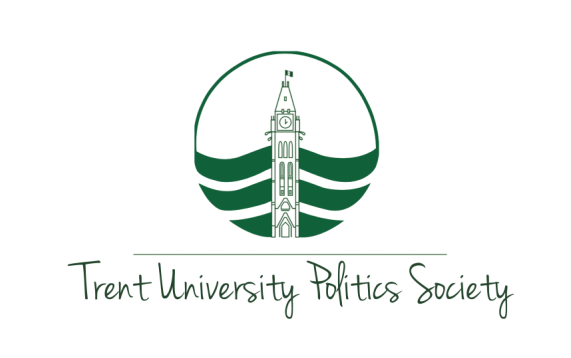
 On Feb. 26, about fifty members of the student body, with a few faculty members sprinkled in, headed to The Pit in Lady Eaton College to attend an extremely informative and gripping set of undergraduate presentations.
On Feb. 26, about fifty members of the student body, with a few faculty members sprinkled in, headed to The Pit in Lady Eaton College to attend an extremely informative and gripping set of undergraduate presentations.
The Trent University Politics Society (TUPS) hosted nine undergraduate students to expand and present some of their most groundbreaking papers in this annual Political Studies Symposium.
First we had Scott Brown, who presented his international development research paper on the rise of China.
Brown focused on the contrast between the United States and China. Despite a few technical difficulties, and a tight time frame of 15 minutes, Brown presented eloquently and calm.
There seemed to be a common focus on neo-liberalist impact throughout the world in almost all nine presentations.
Whether it was Arthur’s own Adriana Sierra and her presentation on the drug issues in Honduras, or Joshua Skinner’s very entertaining presentation entitled “Aboriginal Sovereignty and the Charter.”
Trent Browett also deserves some recognition for his paper entitled, “Agricultural Liberalization: The Haitian Experience,” although the economic aspect of this presentation was heavy and may have gone over some audience members’ heads.
When Browett got down to the facts on the effects that agriculture (with a focus on rice, specifically) has on the Haitian economy, his charismatic presentation skills kept everyone attentive and interested in something that he seemed both very knowledgeable and passionate about.
The interest among politics students in the audience may have piqued especially high during Ashley Fearnall’s presentation entitled “How to Engage a Millennial Voter: Lessons from Trent Votes.”
Fearnall’s paper touched on many issues that millennials face during election season, from finding time to vote in the busy season of October to attendance at the ballot boxes.
She effectively smashed the stereotypes that surround millennials at the polls and was able to assert, with confidence, her thesis that the millennial population is in fact political.
Following each presentation, the presenters were subject to a question and answer period where the audience had an opportunity to challenge ideas and gain further clarification from the day’s experts.
The questions asked were very intellectual and hard-hitting.
Despite the fact that, in some cases, the papers being presented were written in prior years at Trent, the presenters were able to rally with intelligent and confidence answers to these broad questions from both students and faculty.
The organizers as well as the attentive audience would benefit greatly from considering adding an additional five minutes onto the presentation time next year.
Almost every presenter was pressed for time, and in some cases had to cut key points from their presentations, which resulted in some rushing their presentation, or forced them into surpassing the time limit.
All in all, the presenters and their content were extremely impressive and a true testament to the brainpower that Trent students have to offer the world.
Opportunities to hear bright minds actively educating themselves as well as their peers are a pull factor for some students to come to Trent.
If you’d like to be involved in next year’s symposium, feel free to contact the political society. Maybe you will be selected to present your bright ideas, or just come for the free cookies and coffee, no judgments passed here.

